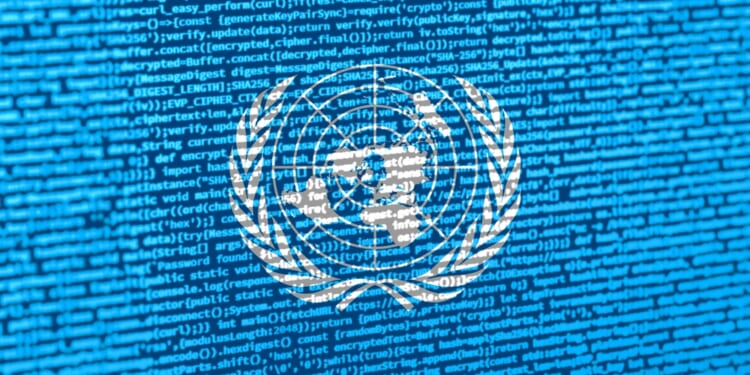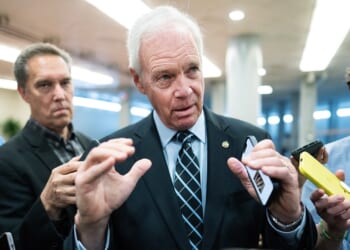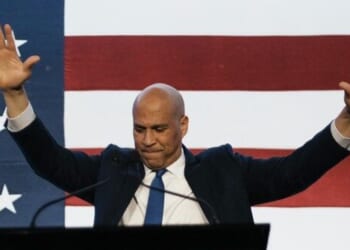At the UN, Michael Kratsios rejected the UN’s AI governance efforts, asserting US leadership and emphasizing American-led innovation and partnerships to shape the future of artificial intelligence.
While President Donald Trump’s fiery speech to the United Nations General Assembly on September 23 and the shenanigans surrounding a broken elevator and teleprompter have gotten a great deal of media attention, another highly consequential speech also deserves notice.
A Firm Message to the UN
On September 24, Michael Kratsios, Director of the White House Office of Science and Technology Policy, told the United Nations (UN) Security Council, in a respectful but firm tone, that there is no way the UN is going to dictate to the United States our policy on artificial intelligence (AI)—and that the United States will be the world’s AI leader in perpetuity.
No one will confuse Director Kratsios with the President. Kratsios is genial and brings the upbeat enthusiasm of a well-liked high school science teacher. He is cerebral, exuding confidence and respect for those with whom he interacts. And, he has the humility to be deferential, as when he addressed the UN audience numerous times as “Your Excellencies.”
But in brief but pointed remarks of less than five minutes, Kratsios called out the UN and reminded them who is driving the AI train globally. On efforts to have the UN dictate algorithms and govern the overall development of AI, Kratsios said: “We totally reject all efforts by international bodies to assert centralized control and global governance of AI. We believe that the responsible diffusion of AI will help pave the way to a flourishing future, one of increased productivity, empowered individuals, and revolutions in scientific advancement.”
And while the United States will lead in AI, it will respect and work with other countries. Kratsios stated that the United States aims to make American AI the global benchmark while helping allies and trade partners develop their own independent AI systems on secure US technology.
The UN’s Push for AI Governance
Kratsios’ remarks come at a time when the UN is seeking to make itself relevant on AI. On August 26, the UN General Assembly adopted Resolution 79/325. It creates a 40-person panel which is responsible for determining “the opportunities, risks and impact of artificial intelligence.”
The resolution also created the Global Dialogue on Artificial Intelligence Governance, which will host discussions on AI governance with the aim of implementing the Sustainable Development Goals and bridging digital divides.
That Director Kratsios politely, respectfully, and firmly told the UN to pound sand on these matters should not be surprising given that US AI policy has been discussed at length by President Trump and his administration on multiple occasions. For example, Vice President J.D. Vance outlined the American approach to AI during his February 11 speech to the global AI Action Summit in Paris.
What the World Has Yet to Understand
The fact that so much of the world has yet to take this message to heart indicates three things.
- First, rhetorically, the United States must hammer home this message until the rest of the world gets it.
- Second, the United States needs to get out of the gate as quickly as possible to introduce our AI stack to other countries, so they realize the economic and other benefits it offers. This means not only a clear and aggressive export policy, but also encouraging other countries to adopt freer markets where collaborative US investments and research and development can best thrive.
- Third, it is clear now, and appropriately so, to Director Kratsios and others in this administration that the UN is irrelevant to AI policy. The rest of the world will fully appreciate America’s AI leadership and the UN’s irrelevance on AI when our technology is exported far and wide and runs throughout the world.
US AI Leadership Through Cooperation
The United States has a long and successful track record of working with other countries to advance its national interests, even when such policies are at odds with the consensus of the United Nations. And while the UN must be called out on its audacity to try to dictate US AI development and policy, that is not synonymous with the United States going it alone on AI. To stay the world’s leader in AI, the US must closely work with nations that share our values. In doing so, the vast benefits of AI will optimally accrue to America, our allies, and most of the rest of the world.
About the Author: Paul Steidler
Paul Steidler is a Senior Fellow with the Lexington Institute, a public policy think tank based in Arlington, Virginia. He researches, studies, and discusses federal government policy on technology and logistics issues, identifying ways the federal government can work more efficiently. This includes analyzing the costs and impacts of federal government policies, as well as their interactions with the European Union and other international organizations.
Image: mr_tigga/shutterstock

















